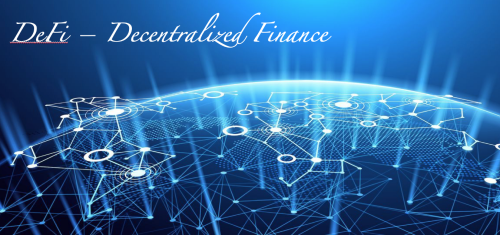
DeFi — The Next Big Thing in Blockchain (R)Evolution?
The Financial sector is one of the most critical parts of the global economy, contributing about 18–20% of GDP. The traditional players like banks have always lagged behind as far as technology adoption is concerned. Whether it be catering to the larger population, improving the user experience or back-end processes, the Banks move at their own pace and miss the innovations happening outside. This, fortunately, changed after the Fintechs entered the domain with solutions catering to the front-end layer of the Financial economy. The Fintech companies changed the way customers interacted with financial services as well as improved accessibility.
But what Fintechs did not touch upon was the underlying infrastructure which is still riddled with centralized control, ever burdening compliances, costly & limited access to services. The transaction and settlement layers are separate and the backend systems do not work seamlessly with the front office. The customers do not control their money and are at the mercy of companies to manage them. Despite the stringent regulations and compliances, the scams and illegal transactions have not ebbed. Some of the new-age fintech companies exploited customers with their payday loans and cash advance products with exorbitant rates. The benefit to the customers was speedy disbursals but by adding to the cost of capital. Similarly, remittances are still very expensive and take a lot of time. The investments are risky not only due to the lack of transparency about the quality of the portfolio but also owing to human greed that defies the norms and leads to scams.
Then Bitcoin was launched and brought the concept of decentralized peer to peer to finance into reality. For the first time, it was possible to transact from peer to peer without any intermediary in a trustless environment. It applied the concepts of cryptography, game theory, distributed ledgers, and consensus protocol to create a trustless economy where the actors could transact with each other in a transparent and secure environment. Initially, the underlying support infrastructure for trading and exchanges was centralized but now that is changing fast with Decentralized Exchanges (DEX), decentralized protocols like Compound for liquidity pool, etc. This has helped open up protocols like Ethereum and EOS to be used to facilitate financial services in a decentralized way.
Decentralized Finance (DeFi) or Open Finance
Decentralized Finance (DeFi) refers to the new ecosystem or movement that uses decentralized networks and applications (DApps) that are open and non-custodial to create various financial products. The underlying concept is to design financial DApps that operate in a trustless network using peer to peer protocols like Ethereum. The DApps covers different financial services like lending & borrowing, investing, trading, insurance, decentralized identity, etc.
As the first-generation DeFi apps still are not completely decentralized, Open Finance is more aptly used to refer to this concept. All the DApps are open and collaborative to complement with each other to enable exciting new offerings and possibilities.
The defining criteria for any DeFi or Open Finance product are:
- Open Source — The DeFi DApps and Smart Contracts are open-source enabling both transparency and community collaboration. The open contracts are open to audits by users, do not ask for user’s private keys, and open for other startups to use in innovative ways. For example, 0x Protocol enables Decentralized Exchanges of tokens on Ethereum.
- Interoperability — The assets on Blockchain need to be interoperable with other protocols so that users are not restricted while dealing with assets whether it be lending or investing. Now, there are various startups enabling cross Blockchain operations. For example, pTokens provides cross-chain composability where any token can be ported to a different blockchain, without friction. It also helps in enhancing liquidity and user experience.
- Programmable — The DeFi apps and smart contracts are programmable where the rules, business logic, and governance is encoded into code. The underlying Blockchain Ledger records the transactions and hosts smart contracts with immutability.
- Accessibility — All the apps and protocols in Open Finance are accessible to everyone without any bias or special requirements. Anyone with a device and internet connection can join the ecosystem bringing access to financial services to the unbanked population. The startups like Biconomy and Zeeve are improving the user experience of the users so complex pieces like key management or gas management are taken care of.
DeFi vis-a-vis Traditional Finance
DeFi is bringing larger control to users, wider access, and trust/transparency to the financial ecosystem. The various ways where DeFi scores over traditional finance are:
- The customers are in control of their assets reducing risk due to centralization.
- The DeFi apps and protocols are open source and open for anyone to audit bringing trust and security.
- The DeFi brings unbiased accessibility to the users, across geographies. The whole world is one and equal.
- The composability feature of DeFi protocols allows designing new products by combining existing products. This makes the product design agile and relevant for the users.
- The DApps and networks can be accessed by using standard tools like metamask, coinbase, etc. The single window access to multiple apps using a single set of credentials improves the user experience.
DeFi Projects to follow
The DeFi ecosystem is growing rapidly with new products, protocols, and platforms. Some of the noteworthy DeFi start-ups covering various financial services are as follows:
- Credit and Lending — The DeFi projects in lending/borrowing space allows peer to peer (P2P) lending in a non-custodial way. Various projects are coming up to build credit scoring engines also. Examples are BlockFi, Compound, SALT, ETHLend, Atomic Loans, and NUO Network
- Savings and Deposits — The DeFi projects in this domain are providing decentralized banking apps where the users can make deposits and earn interest. These projects provide simple user interfaces for users to interact with lending protocols. Examples are Dharma, PoolTogether, Linen App
- Insurance — The DeFi projects in Insurance space are enabling decentralized insurance with innovative product design, P2P transactions, and transparency. Examples are Etherisc, Nexus Mutual, VouchForMe
- Trading and Exchanges — The DeFi projects in this space are providing decentralized exchanges so that risk inherent in the centralized exchanges is eliminated. Examples are AirSwap, Bancor, IDEX, Uniswap, Oasis
- Payments — The DeFi projects in this space are helping protocols improve the scalability of network and throughput of transactions. This is much needed to enable wider adoption. Examples are — Lightning Network, and OmiseGO
- Stablecoins — The DeFi projects in this space are providing an alternative to cryptocurrencies like Bitcoin or Ether to increase the usage of cryptocurrencies in real-world transactions. Stablecoins are asset-backed cryptocurrencies backed by Fiat, Gold, etc. It combines the benefit of cryptocurrencies and fiat currencies. Examples are DAI, USDC, Paxos Standard
- Tokenization of Assets — The DeFi projects in this space helping tokenize the digital and physical assets so that the benefits of Blockchain Technology can be leveraged for assets other than cryptocurrencies. Examples are Polymath Network, Securitize, Tokensoft, OpenLaw Finance, Harbor
- Staking — The DeFi projects in this space are helping the Blockchain protocols to thrive by enabling investors to participate in staking consensus and earn rewards. Examples are Chorus One, HyperBlocks, Stake Capital, SparkPool, Stakin
- DeFi Infrastructure — The DeFi projects in this space are enabling the necessary infrastructure and protocols for other projects to build applications. Examples are Ox Protocol, Bancor Protocol, Chainlink, Kyber Network, RSK, Ren, Uniswap, Zeeve
- Decentralized Identity — The DeFi projects in this space are providing Decentralized identity enabling one identity to access the entire DeFi ecosystem. These projects are also helping users to take to become part of the online economy and manage their privacy. Examples are uPort, Civic, Sovrin
- Analytics — The DeFi projects in this space provide analytics, indexes, and insights about the transactions and usage for various protocols and platforms. Examples are Alethio, Chainbeat, DeFi Pulse
- Asset Management — The DeFi players in this space have built user-friendly wallets and user interfaces for the users to use and manage their access to various DeFi apps and protocols. Examples are Coinbase Wallet, Eidoo, imToken, InstaDApp, MetaMask, MyEtherWallet
As with every new concept, the DeFi ecosystem is also facing its own set of challenges for it to realize its true potential. But the encouraging part is that more and more startups are coming up and working to solve some of these challenges. Besides, there are various elements from regulation and compliance perspectives that need to be tackled for the DeFi ecosystem to thrive. Decentralized finance is highly promising and is going to change the way we think of finance.
Zeeve is the leading Blockchain as a Service platform helping enterprises and Blockchain startups build, deploy and manage reliable decentralized apps and Blockchain networks. Zeeve is a low code automation platform that is cloud agnostic and supports multiple Blockchain protocols with advanced analytics and monitoring of nodes and networks. Zeeve features a powerful set of APIs to build DApps for a plethora of use cases across industries. Zeeve supports Decentralized Finance (DeFi) space with decentralized storage, trusted nodes and smart contracts. For more details, schedule a free call with our DeFi specialist.


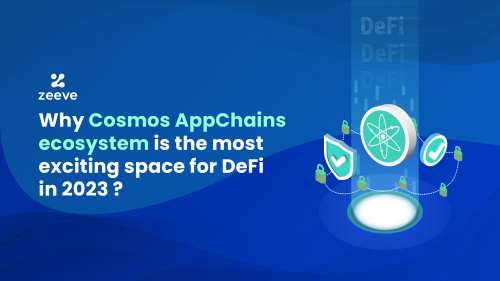
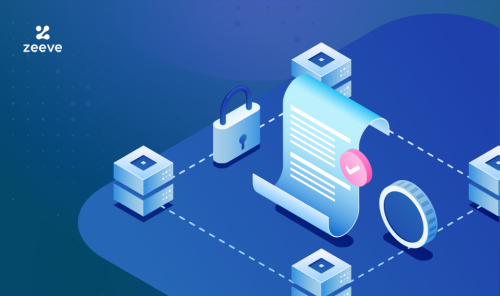
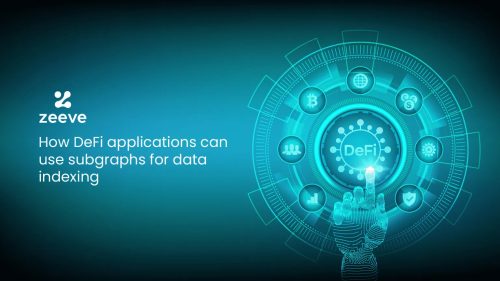
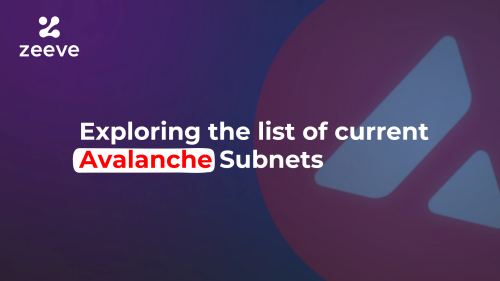
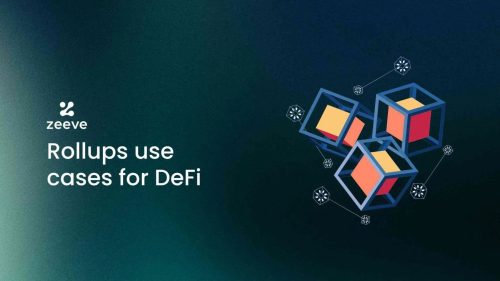
Responses